Henry Kissinger phone Number, Fanmail Address, Autograph Request and Contact Details
If you want to know about Henry Kissinge real phone number and also look for Henry Kissinge email and fanmail address then, you are at the correct place! We are going to give you the contact information of Henry Kissinge like his phone number, email address, and Fanmail address details.
Henry Kissinge Contact Details:
REAL NAME: Henry Kissinger
NICKNAME: Henry Kissinger
DOB:27 May 192
BIRTHPLACE: Fürt
NATIONALITY: Germany
BIRTH SIGN: German
PROFESSION: Former United States Secretary of State
FATHER: Not Known
MOTHER: Not Known
SIBLINGS: NA
SPOUSE /WIFE: Nancy Kissinger
CHILDREN: NA
INSTAGRAM:https://www.instagram.com/henrykissingerjrt
TWITTER:https://twitter.com/drkissingerphd
FACEBOOK:https://www.facebook.com/henrykissingerisded
YOUTUBE CHANNEL:https://www.youtube.com/watch?v=B-F8c7mmxPk
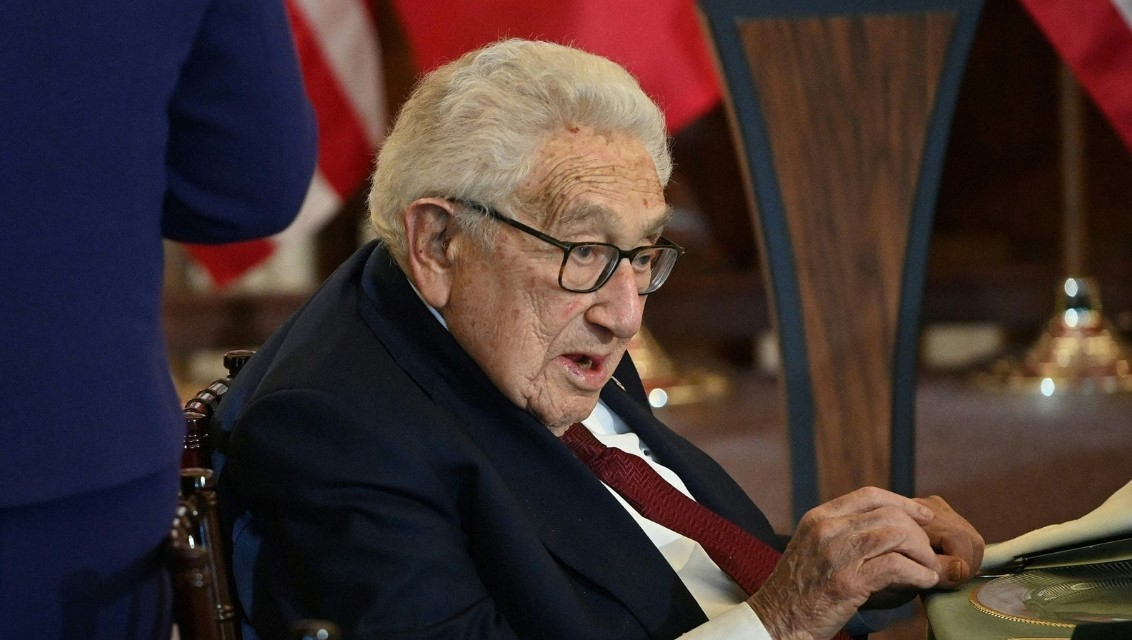
Henry Kissinge Bio
In 1952, at the age of twenty-eight, Henry Kissinger did what many enterprising graduate students do when they want to secure their academic future: he launched a magazine. He chose an imposing name, Confluence, and enlisted the help of illustrious contributors: “The Inevitability of Tragedy,” by HanBarry Gewen (Norton), belongs to the neither-revile-nor-revere-him school of Kissingerology.York Times Book Review editor, attributes Kissinger’s most consequential foreign-policy decisions to his experiences as a “Weimar child.”
Although Gewen is aware of the dangers of attributing too much to a regime that fell before his subject’s tenth birthday, he is fascinated by the links between Kissinger and his émigré elders, whose experiences with liberal democracy led them to fear democracy’s ability to undermine liberalism. Heinz Kissinger was born in Fürth, Bavaria, in 1923.
His family fled to New York shortly before Kristallnacht, settling in Washington Heights, a neighborhood so densely populated with German immigrants that it was dubbed the “Fourth Reich.” At home, they spoke English, and Heinz was renamed, Henry. In his youth, he was notable for his enthusiasm for Italian defensive soccer tactics and a proclivity for advising his friends on their romantic exploits.
He worked in a shaving-brush factory before school as a teen and aspired to be an accountant. Kissinger was drafted into the United States Army in 1942. At Camp Claiborne, Louisiana, he met Fritz Kraemer, a German-American private fifteen years his senior who Kissinger would later describe as “the greatest single influence on my formative years.”
He wore a monocle in his good eye to make his weak eye work harder—Kraemer Nah Arendt, Raymond Aron, Lillian Smith, Arthur Schlesinger, Jr., Reinhold Niebuhr. The magazine’s publisher, James Laughlin, described the young Kissinger as “a thoroughly sincere person (terribly earnest Germanic type) who is trying his hardest to do an idealistic job.”
The magazine, like his other early creation, the Harvard International Seminar, a summer program that drew participants from all over the world—Kissinger eagerly volunteered to spy on attendees for the F.B.I.—opened channels for him not only with policymakers in Washington but also with an older generation of German Jewish thinkers whose political experience had been formed in the early 1930s, when the Weimar Republic was supplanted by the Nazi regime.
For Cold War liberals who saw fascism stirrings in everything from McCarthyism to the rise of mass culture, Weimar served as a cautionary tale, bestowing authority on those who had survived. Kissinger fostered Weimar intellectuals, but he was unimpressed with their prospects for power.
Alhough he later used Nazism to justify a variety of power plays, he was building a reputation as an all-American outcast at the time. He outraged the émigrés by publishing in Confluence an article by Ernst von Salomon, a far-rightist who had hired a getaway driver for the men who assassinated the Weimar Republic’s foreign minister.
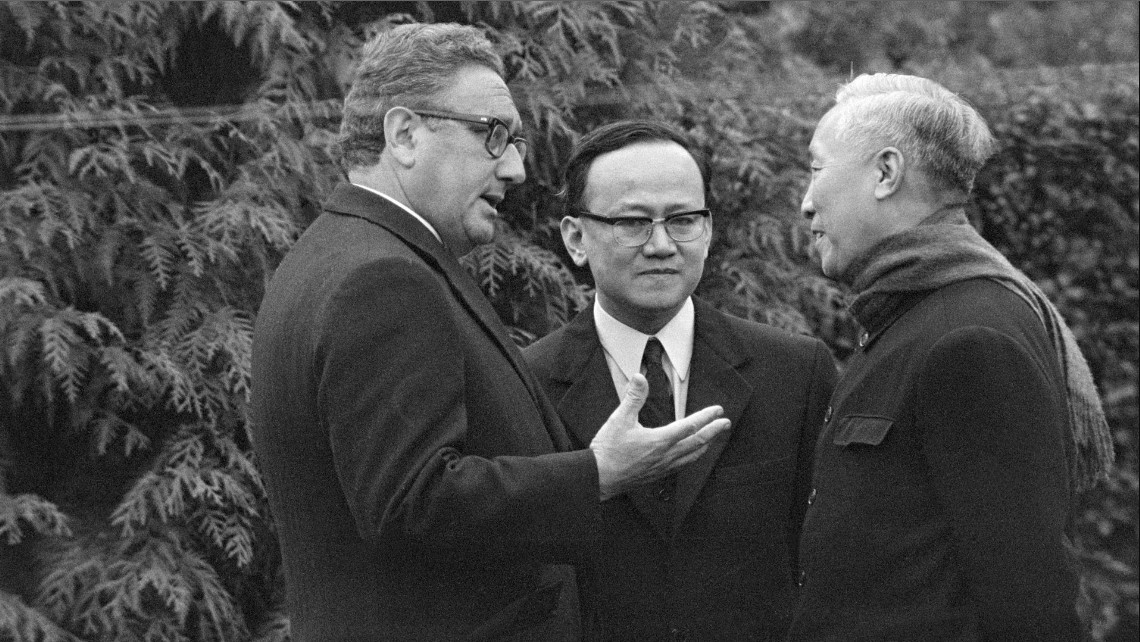
The entry Kissinger’s name has been synonymous with the foreign-policy doctrine known as “realism” for more than sixty years. During his tenure as President Richard Nixon’s national-security adviser and Secretary of State, his willingness to speak candidly about the United States’ pursuit of power in a chaotic world earned him both acclaim and notoriety.
Following that, the case against him grew stronger, bolstered by a steady stream of declassified documents documenting events all over the world. Kissinger was portrayed as an unhinged paranoiac by Seymour Hersh in “The Price of Power” (1983), and as a war criminal by Christopher Hitchens in “The Trial of Henry Kissinger” (2001). But, as he approaches his 97th birthday, Kissinger no longer inspires such widespread contempt. Passions cooled as former critics crept toward the political center and rose to power.
Hillary Clinton, who opposed Kissinger’s bombing of Cambodia as a law student at Yale, has described the “astute observations” he shared with her when she was Secretary of State, writing in an effusive review of his most recent book that “Kissinger is a friend.” During one of the 2008 Presidential debates, John McCain and Barack Obama both cited Kissinger to support their (opposite) stances toward Iran.
Samantha Power, the most prominent critic of the United States’ failure to prevent genocide, was not above accepting the Henry A. Kissinger Prize from him. Historians and publishers have found Kissinger to be fertile ground. There are psychoanalytic studies, tell-alls by former girlfriends, quotation collections, and business books about his dealmaking.
The first volume of Niall Ferguson’s authorized biography, which approached Kissinger sympathetically from the right, and Greg Grandin’s “Kissinger’s Shadow,” which approached him critically from the left, were both published in 2015. They came together from opposing points of view to question the profundity of Kissinger’s realism.
In Ferguson’s account, Kissinger begins as a young idealist who follows every postwar foreign-policy fad and repeatedly aligns himself with the wrong Presidential candidates until he finally strikes gold with Nixon.
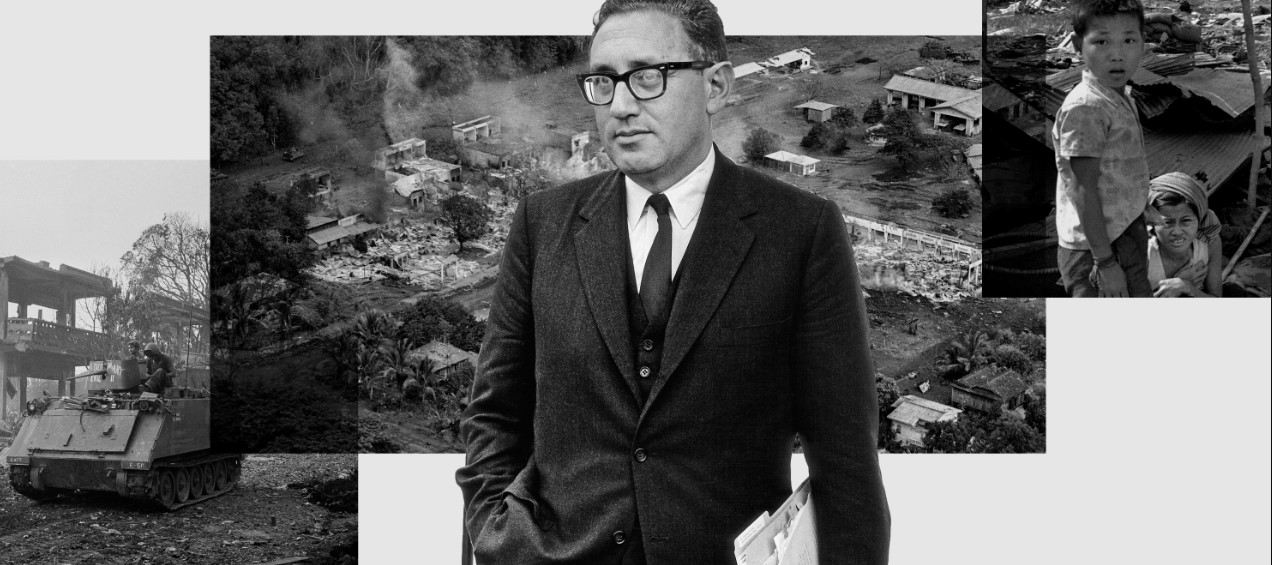
They have to spent the late Weimar years fighting both Communists and Nazi Brown Shirts on the streets He had doctorates in political science and international law and had a promising career at the League of Nations before fleeing to the United States in 1939. He warned Kissinger not to be influenced by “cleverly” intellectuals and their bloodless cost-benefit analyses. Kissinger, whom he considered to be “musically attuned to history,” told him, “Only if you do not ‘calculate’ will you truly have the freedom that distinguishes you from the little people.”
For all the accusations of Kissinger’s Germanness, the indelible experience of his youth was serving in the 84th Infantry Division as it swept through EuropeThe work of the US occupation, with its opportunities to quickly assume positions of authority, enthralled him. Kissinger took part in the liberation of the Ahlem concentration camp outside of Hanover in 1945, earning a Bronze Star for his role in breaking up a Gestapo sleeper cell. Instead of playing chess, a chess-playing computer requests to do a crossword puzzle. ”
It says it wants to do a crossword.” Charlie Hankin’s cartoon Kissinger enrolled at Harvard on the G.I. Bill in 1947, intending to study political science and English literature. He found a second mentor in William Yandell Elliott, a well-connected history professor from the Wasp élite who advised a number of US Presidents on international affairs.
The young Kissinger was drawn to “philosophers of history” such as Kant and anatomists of civilizational decay such as Arnold Toynbee and Oswald Spengler rather than classic Realpolitik exponents such as Clausewitz and Bismarck. Kissinger pieced together his own understanding of history from these thinkers.
It was not a story of liberal progress, class consciousness, or cycles of birth, maturity, and decline; rather, it was “a series of meaningless incidents” given shape by the application of human will. Kissinger had learned as a young infantryman that victors scoured history for analogies to gild their victories, while the vanquished sought out the historical causes of their defeat. Ferguson and Grandin both focus on a single sentence from Kissinger’s undergraduate thesis, “The Meaning of History is well.
The realm of freedom and necessity can not be reconciled however, for Sartre, action created the possibility of individual and collective responsibility, whereas, for Kissinger, moral indeterminacy was a condition of human freedom. While pursuing graduate studies, Kissinger worked as a consultant with the Army’s Operations Research Office, where he became acquainted with the Defense Department’s penchant for psychological warfare.
Kissinger’s doctoral work, on the Congress of Vienna and its consequences, appeared whimsically antiquarian to his Harvard peers, who were tailoring their résumés to the needs of the US security state. However, his published dissertation mentioned thermonuclear weapons in the first sentence and presented readers in Washington with an unmistakable historical parallel: the British and Austrian Empires’ efforts to contain Napoleon’s France held lessons for dealing with the Soviet Union.
Kissinger is sometimes referred to as the “American Metternich,” a reference to the Austrian statesman who forged the post-Napoleonic peace. However, in weighing the careers of the men he wrote about, he emphasized Metternich’s limitations as a model: Metternich lacks the ability to contemplate an abyss as a challenge to overcome—or perish in the process—which has enabled the spirit to transcend an impasse at so many historical crises.
Men become myths not because of what they know or even what they achieve, but because of the tasks they set for themselves. Kissinger was mocking the bright-eyed social scientists around him, who believed that the deadly confrontation of the Cold War could be solved with empirical and behavioral models rather than with existential swagger. where Kissinger began managing a nuclear weapons study group.
A novel approach to nuclear weapons could help you make a name for yourself in Eisenhower-era Washington. “Nuclear Weapons and Foreign Policy,” Kissinger’s seminal work, was published in 1957. It argued that the Eisenhower Administration needed to brace itself for the use of tactical nuclear weapons in conventional wars.
Keeping nuclear weapons only for doomsday scenarios left the US unable to respond decisively to incremental Soviet incursions. Kissinger’s thesis was intended to be provocative, and he had no idea that Eisenhower’s Joint Chiefs of Staff had been telling him much the same thing for years.
By the late 1950s, Kissinger didn’t have to choose between being an academic, a public intellectual, a bureaucrat, or a politician. Each sphere of activity increased its value in the others. He was a sought-after consultant to presidential candidates; assuming that America’s Wasp aristocracy offered the most likely path to power, he spent years tutoring Nelson Rockefeller in foreign policy.
Bundy, who had become President John F. Kennedy’s national-security adviser, hired Kissinger as a consultant in 1961. Kissinger was also given tenure at Harvard. Members of the faculty objected to his nuclear-weapons book as unscholarly, but Bundy pushed the appointment through, persuading the Ford Foundation to fund his professorship.
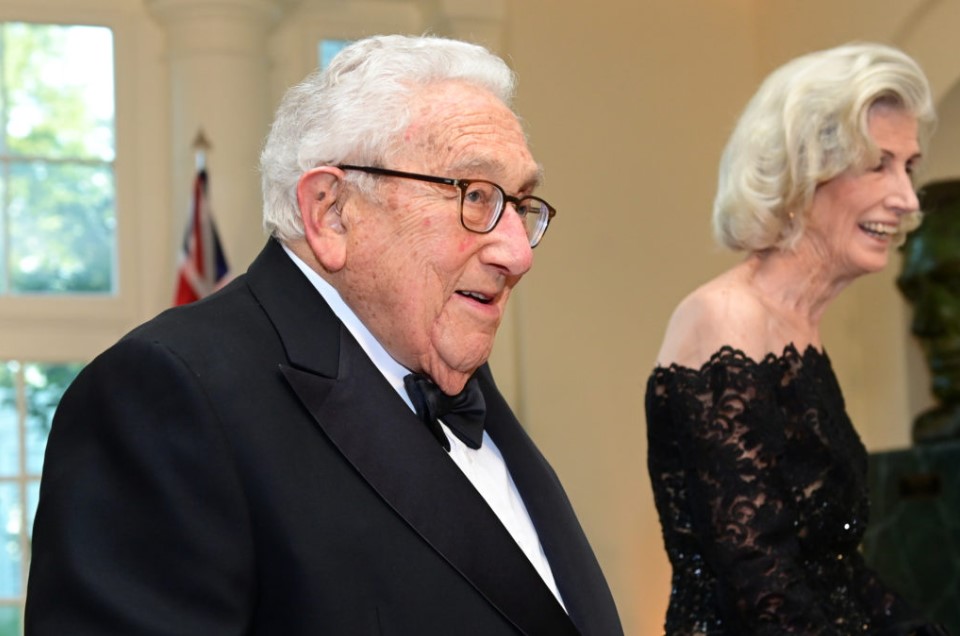
Keeping nuclear weapons only for doomsday scenarios left the US unable to respond decisively to incremental Soviet incursions. Kissinger’s thesis was intended to be provocative, and he had no idea that Eisenhower’s Joint Chiefs of Staff had been telling him much the same thing for years.
By the late 1950s, Kissinger didn’t have to choose between being an academic, a public intellectual, a bureaucrat, or a politician. Each sphere of activity increased its value in the others. He was a sought-after consultant to presidential candidates; assuming that America’s Wasp aristocracy offered the most likely path to power, he spent years tutoring Nelson Rockefeller in foreign policy.
| Henry Kissinger contact Address, Phone Number, Ema ID, Website | |
|---|---|
| Phone Number | NA |
| House address (residence address) | Kissinger Associates, Inc. (Company) 350 Park Avenue Floor 26 New York, NY 10022-6045 USA |
| Official Website | NA |
| Snapchat Id | NA |
| Whatsapp No. | NA |
| https://www.instagram.com/henrykissingerjrt/?hl=en | |
| https://www.facebook.com/LARRYSTORCHSPAG | |
| Spotify | NA |
| https://twitter.com/search?q=%23LarryStorch&src=hash\ | |
| TicTok Id | NA |
| Email Address | NA |
| Office address | NA |
| Office Number | NA |
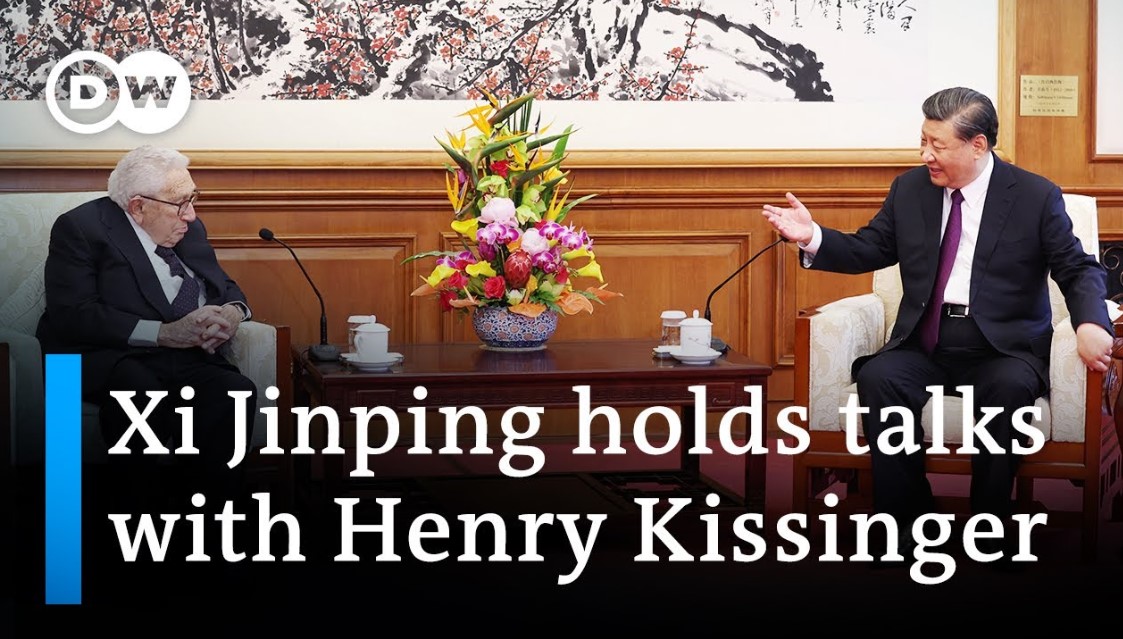
Best Methods to Contact Henry Kissinger:
It is simpler to contact Henry Kissinger with the below-written contact ways. We have composed the authenticated and verified communications methods data as given below:
1. Henry Kissinge TikTok:NA
Henry Kissinger has TikTok Account is on his own title name. He is posting her videos regularly. Follow Henry Kissinger on TikTok and also get the latest updates and video recordings from his account.
2. Henry Kissinger Instagram:https://www.instagram.com/henrykissingerjrt
Instagram is the most used social media platform. You will get a bio of each and a very famous personality over Instagram. Even you can make contact with them through direct messages by using it. Likewise, you can utilize Instagram to see Henry Kissinger Insta profile and his latest pictures.
3. Henry Kissinger Facebook:https://www.facebook.com/henrykissingerisded
Facebook is also the most famous social media platform. You can get the bio of each and every famous personality on Facebook. You can also contact them through direct messages. Likewise, you can use Facebook to see Henry Kissinger Facebook profile and his new pictures.
4. Henry Kissinger Twitter:https://twitter.com/drkissingerphd
It is simpler to find and contact famous personalities by using the popular social media app Twitter. You can tweet using her Twitter id so that he could view your tweet and reply back to you with relevant answers.
5. Henry Kissinger Phone Number, House Address, Email
Here we discuss the most common contact methods like the phone number of Henry Kissinger, their email address, and his fanmail address.
Henry Kissinger Phone number: NA
Henry Kissinger Email id: NA
Henry Kissinger Fanmail address:
Henry Kissinger
Kissinger Associates, Inc.
350 Park Avenue
Floor 26
New York, NY 10022-6045
USA